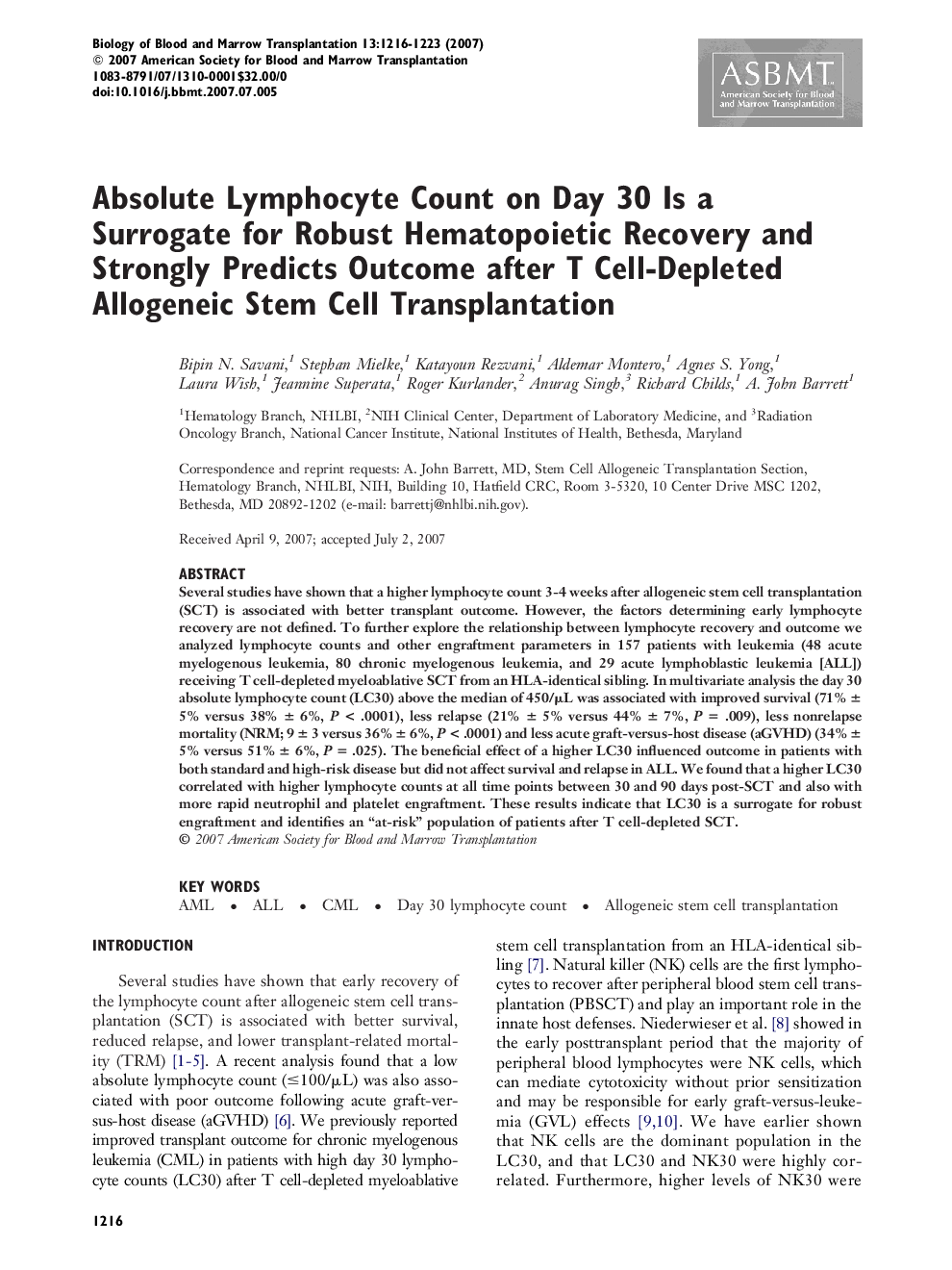| Article ID | Journal | Published Year | Pages | File Type |
|---|---|---|---|---|
| 2104964 | Biology of Blood and Marrow Transplantation | 2007 | 8 Pages |
Several studies have shown that a higher lymphocyte count 3-4 weeks after allogeneic stem cell transplantation (SCT) is associated with better transplant outcome. However, the factors determining early lymphocyte recovery are not defined. To further explore the relationship between lymphocyte recovery and outcome we analyzed lymphocyte counts and other engraftment parameters in 157 patients with leukemia (48 acute myelogenous leukemia, 80 chronic myelogenous leukemia, and 29 acute lymphoblastic leukemia [ALL]) receiving T cell-depleted myeloablative SCT from an HLA-identical sibling. In multivariate analysis the day 30 absolute lymphocyte count (LC30) above the median of 450/μL was associated with improved survival (71% ± 5% versus 38% ± 6%, P < .0001), less relapse (21% ± 5% versus 44% ± 7%, P = .009), less nonrelapse mortality (NRM; 9 ± 3 versus 36% ± 6%, P < .0001) and less acute graft-versus-host disease (aGVHD) (34% ± 5% versus 51% ± 6%, P = .025). The beneficial effect of a higher LC30 influenced outcome in patients with both standard and high-risk disease but did not affect survival and relapse in ALL. We found that a higher LC30 correlated with higher lymphocyte counts at all time points between 30 and 90 days post-SCT and also with more rapid neutrophil and platelet engraftment. These results indicate that LC30 is a surrogate for robust engraftment and identifies an “at-risk” population of patients after T cell-depleted SCT.
